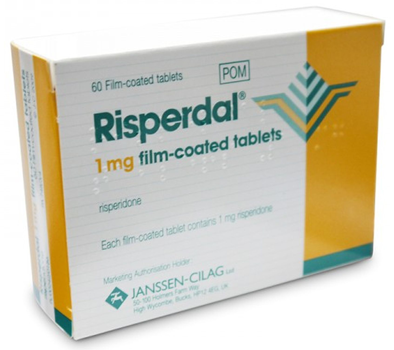A California appeals court has reinstated the eligibility of thousands of cases against Johnson & Johnson and its Janssen Pharmaceuticals subsidiary, alleging that the company’s antipsychotic drug Risperdal causes abnormal breast growth in males. The court ruling reverses a lower court’s decision to grant Johnson & Johnson’s motion for summary judgment on the grounds that the Risperdal claims are federally preempted, due to the fact that the company failed to send all of its data to federal regulators while seeking approval for Risperdal to treat irritability associated with autism in children and adolescents. The decision by the California Second District Court of Appeal allows the Risperdal cases to finally proceed in the MDL after years of motion practice.
J&J Failed to Submit Data to FDA
Johnson & Johnson and its subsidiaries are facing more than 13,000 lawsuits over Risperdal and another antipsychotic drug called Invega (paliperidone). The lawsuits allege that boys and men taking Risperdal face an increased risk of gynecomastia, a condition characterized by the abnormal enlargement of breast tissue in males, also known as male breast growth. In seeking approval for Risperdal as a treatment for autism-related irritability in adolescents and children, Johnson & Johnson failed to submit a specific set of data referred to in court documents as “Table 21,” which showed that Risperdal treatment could increase the risk of gynecomastia by as much as 2.8 times in some patients.
J&J previously won dismissal of several thousand Risperdal gynecomastia cases on the basis of federal preemption, claiming that federal law prohibited the company from changing the FDA-approved labeling and that the missing data would not have been enough to require a change in Risperdal labeling. In an opinion filed on May 8, the California Second District Court of Appeal disagreed, ruling that the plaintiffs’ claims are not preempted and that the trial court was wrong in granting summary judgment to J&J on the basis of federal preemption. “Table 21 provided additional information with respect to elevated prolactin levels during different time periods,” the court wrote. “As the risperidone label made no mention of the likelihood of developing side effects related to elevated prolactin levels for different time periods, this information demonstrated a risk of greater frequency than reported on the label.”
Missing Data “Central” to Plaintiffs’ Claims Against J&J, Janssen
According to Timothy Clark of Sanders Phillips Grossman, who is lead counsel for the consolidated Risperdal litigation, the missing data from Table 21 is central to plaintiffs’ arguments in the Risperdal litigation that Johnson & Johnson and its subsidiaries failed to warn Risperdal users, their families and healthcare providers about the potential risk of gynecomastia. By withholding this information from the Risperdal label, the drug company is accused of misrepresenting the risks of Risperdal, and the decision by the California appeals court seeks to right that wrong by allowing the cases against J&J to proceed. “We applaud the court’s decision,” said Marc Grossman of Sanders Phillips Grossman, which represents approximately 10,000 Risperdal claimants, in response to the appeals court’s ruling. “It was the correct ruling on the merits and sets the stage for us to finally obtain justice for our clients, who have suffered one of the worst injuries you can imagine for a young boy.”
Link Between Risperdal and Male Breast Growth
The connection between Risperdal and gynecomastia has to do with elevated levels of prolactin, a hormone that stimulates breast development and lactation in women who are pregnant or nursing. Risperdal has been shown to increase prolactin levels in users and as Table 21 shows, children with elevated prolactin levels after taking Risperdal for eight to 12 weeks were 2.8 times more likely to develop gynecomastia. The Risperdal lawsuits pending against J&J and its subsidiaries allege, among other things, that male children with autism who were given Risperdal to reduce aggression and other behavior problems were not properly warned about the potential for Risperdal to cause a hormone imbalance and lead to the growth of male breasts. “We are pleased that these plaintiffs will finally have their day in court,” said Martin N. Buchanan of the Law Office of Martin N. Buchanan, representing plaintiffs in the Risperdal case. “As the Court of Appeal ruled, federal law did not make it impossible for Janssen to give adequate warnings about the risk of gynecomastia.”
Plaintiff Verdicts in Risperdal Gynecomastia Trials
Clark says that while the California Court of Appeal’s decision is specific to a handful of plaintiffs in the case, the ruling clears the way for thousands of lawsuits involving children who took Risperdal after 2006. Young boys and their families across the country are seeking compensation from Johnson & Johnson and its subsidiaries for gynecomastia side effects allegedly resulting from Risperdal treatment. In one of the earlier Risperdal gynecomastia trials, plaintiff Nicholas Murray was awarded $1.75 million in compensatory damages for the gynecomastia side effects he allegedly suffered as a result of his Risperdal use. According to the lawsuit, Murray developed breasts after taking Risperdal for five years as an adolescent and he continued taking the medication after the FDA expanded the drug’s approval for use in children. The court ended up ordering a second trial to determine whether Murray was eligible for punitive damages, and in October 2019, a jury hit Johnson & Johnson with another $8 billion punitive damages verdict.



